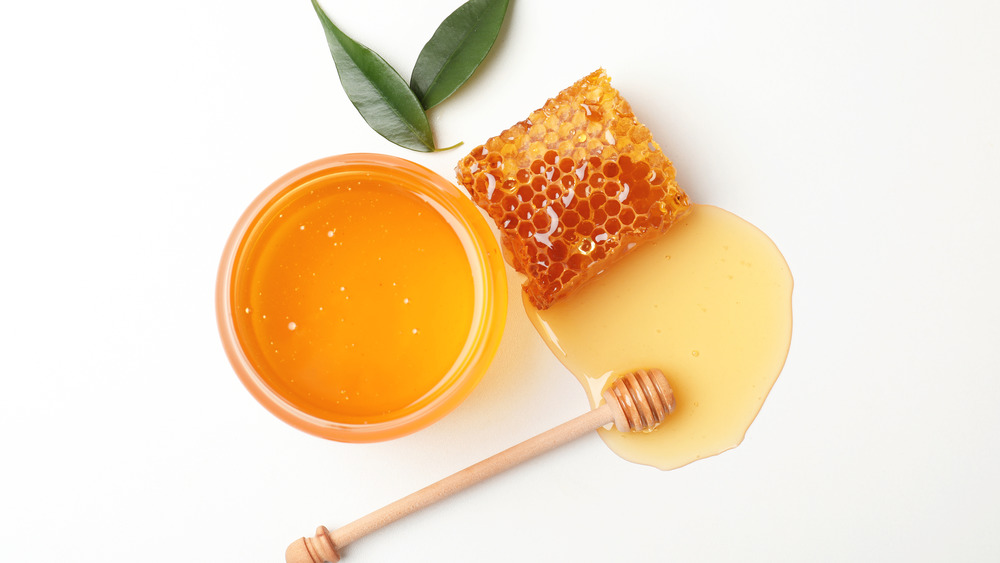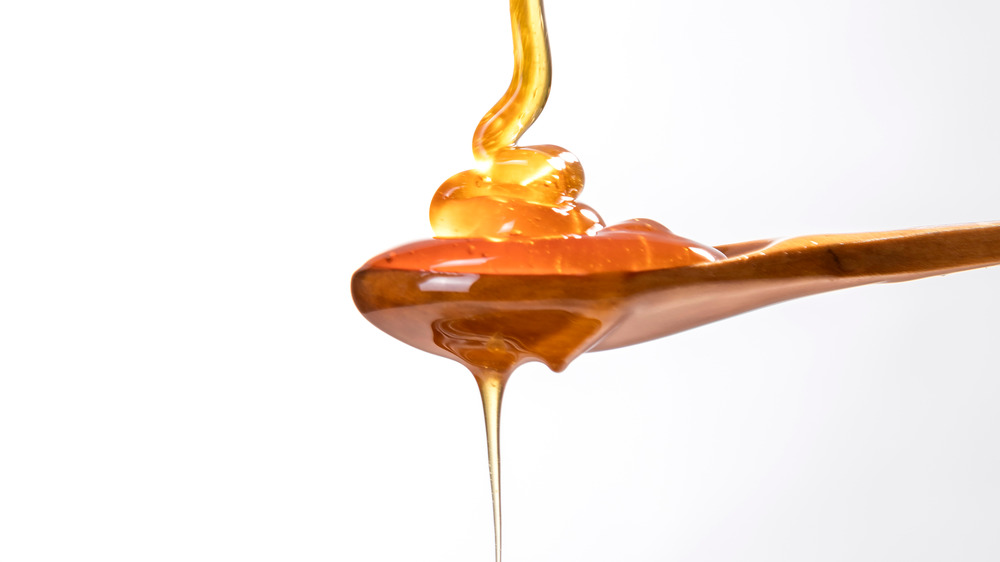Is Honey Really Healthier Than Sugar?
Sugar's gotten a bad rep in recent years, especially among those determined to lose weight. The typical American diet is loaded with tons of added sugars, which is linked to an increased risk of heart disease (via Harvard Health Publishing). Honey is a favored "healthy" substitution — but is it really all that much healthier than sugar?
According to Healthline, both honey and sugar are made up of two primary components: fructose and glucose. However, unlike sugar, honey also contains small amounts of B & C vitamins, enzymes, antioxidants, and amino acids. Honey is also higher in fructose, the sweeter compound, so you can use less honey and still end up with a sweeter taste.
The amount of fructose in honey also determines how it affects your body. Honey with a higher percentage of fructose (around 35 to 45 percent) is lower on the glycemic index than pure honey, and both are lower than white sugar (via Livestrong).
Should I just use honey instead of sugar?
Although honey has trace amounts of nutrients, it's still a sugar. The official recommendation from the American Heart Association is no more than 6 teaspoons of added sugar for women and about 9 teaspoons for men. Honey counts towards that limit, so be mindful when sweetening your beverages and foods.
Honey is also higher in calories than sugar. One tablespoon of sugar has about 49 calories, while a tablespoon of honey has 64 calories (via Medical News Today). And even white sugar isn't terrible for you in moderation. The main concerns are added sugars, which, according to Men's Health, are easy to overdo if you're not being mindful about other additives that might cause you to binge.
If you're particularly sensitive to allergens, you may want to skip honey altogether. According to the Mayo Clinic, some components, most notably bee pollen, can trigger rare but serious allergic reactions. And although honey can work as a natural cough suppressant, it should never be used for children under 1 due to the risk of botulism.


